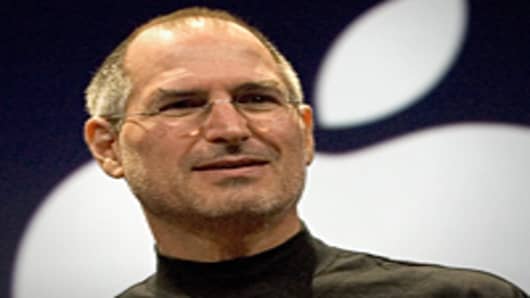Before he died, Steve Jobs believed he had figured out a way to transform television—just as he had done with computers, music players and cell phones.
“It will have the simplest user interface you could imagine," the iconic Apple founder tells author Walter Isaacson in the new biography released Monday. "I finally cracked it.”
Jobs is referring to the voice-recognition technology used in the new iPhone 4s, according to UBS analyst Maynard Um, who wrote about Apple’s coming TV revolution way back in July.
“The Siri voice technology used in the iPhone 4s will be without a doubt the game changer included in the Apple television,” said Um. “I think that is what he is referring to in the book when he says he ‘cracked it.’”
This breakthrough into the $100 billion LCD TV market would complete the entertainment and information halo that Jobs envisioned but failed to achieve in his lifetime after relatively lackluster sales of the current Apple TV device. Jobs died earlier this month.
“Apple’s entry into the Smart TV market provides yet another significant growth driver for the company and further solidifies the reach of Apple’s ever expanding digital ecosystem that seems to only accelerate demand for existing products,” wrote Brian White of Ticonderoga Securities in a note to clients Monday. “Features such as Siri, FaceTime, the App Store, iTunes and gaming are a natural fit for a full blown Apple TV.”
Four million iPhone 4S devices were sold in the first three days after its introduction, putting it on track to be its best-selling iteration of the phone ever. The Siri voice recognition assistant allows users to “send messages, schedule meetings, place phone calls, and more,” according to Apple’s web site. Reviews from users generally call it the best voice recognition phone so far.
Now imagine telling your TV to change channels to the World Series, record “Boardwalk Empire,” or video call a member of your family?
Apple delayed a refresh cycle scheduled this quarter for its current tiny black TV device, perhaps because of a ramp up in the manufacturing of a smart TV, according to Ticonderoga’s White, who said he uncovered this information on a recent trip to China.
“Our recent checks point to further confirmation that an iTV launch is planned in second half 2012 with initial builds of 5 million to 10 million,” wrote Peter Misek, Jefferies tech analyst, in a note Monday.
To be sure, Apple’s potential foray into the living room will be its most difficult product revolution yet. Not only has the flat panel TV market devolved into a very low margin business, but one needs to only look at the recent struggles of Netflix to see what can happen to so-called cord cutters that try to usurp the cable companies.
As for the content conundrum, that’s the big question here, according to analyst Um at UBS. Does Apple start a subscription service on its own to compete with cable or does offer its iTunes content ala carte and allow users to connect their cable to this new iTV?
Microsoft recently announced that it would allow Comcast and Verizon cable to be available through its Xbox Live services. The XBox will offer content on top of that directly, like original series from HBO and movies from Warner Brothers and Universal Studios.
If Apple gets the content side of it figured out, it could charge much more than current LCD TV makers, beating back the trend of compressing margins in the industry.
“Apple will be able to charge a price for a new smart TV that is two to three times the competitors’ LCD TV products due to the Apple brand, unmatched aesthetics, expansive digital ecosystem and overall quality,” said Ticonderoga’s White.
Apple’s shares jumped more than 3 percent on Monday, pushing the Nasdaq Composite Index into the black for 2011, following the release of Jobs’ TV mention in his biography.
“It would be seamlessly synced with all of your devices and with iCloud,” Jobs told Isaacson. “I’d like to create an integrated television set that is completely easy to use.”
For the best market insight, catch 'Fast Money' each night at 5pm ET, and the ‘Halftime Report’ each afternoon at 12:00 ET on CNBC. Follow @CNBCMelloy on Twitter.
______________________________________________________
Got something to say? Send us an e-mail at fastmoney-web@cnbc.com and your comment might be posted on the Rapid Recap! If you'd prefer to make a comment, but not have it published on our Web site, send your message to fastmoney@cnbc.com.



